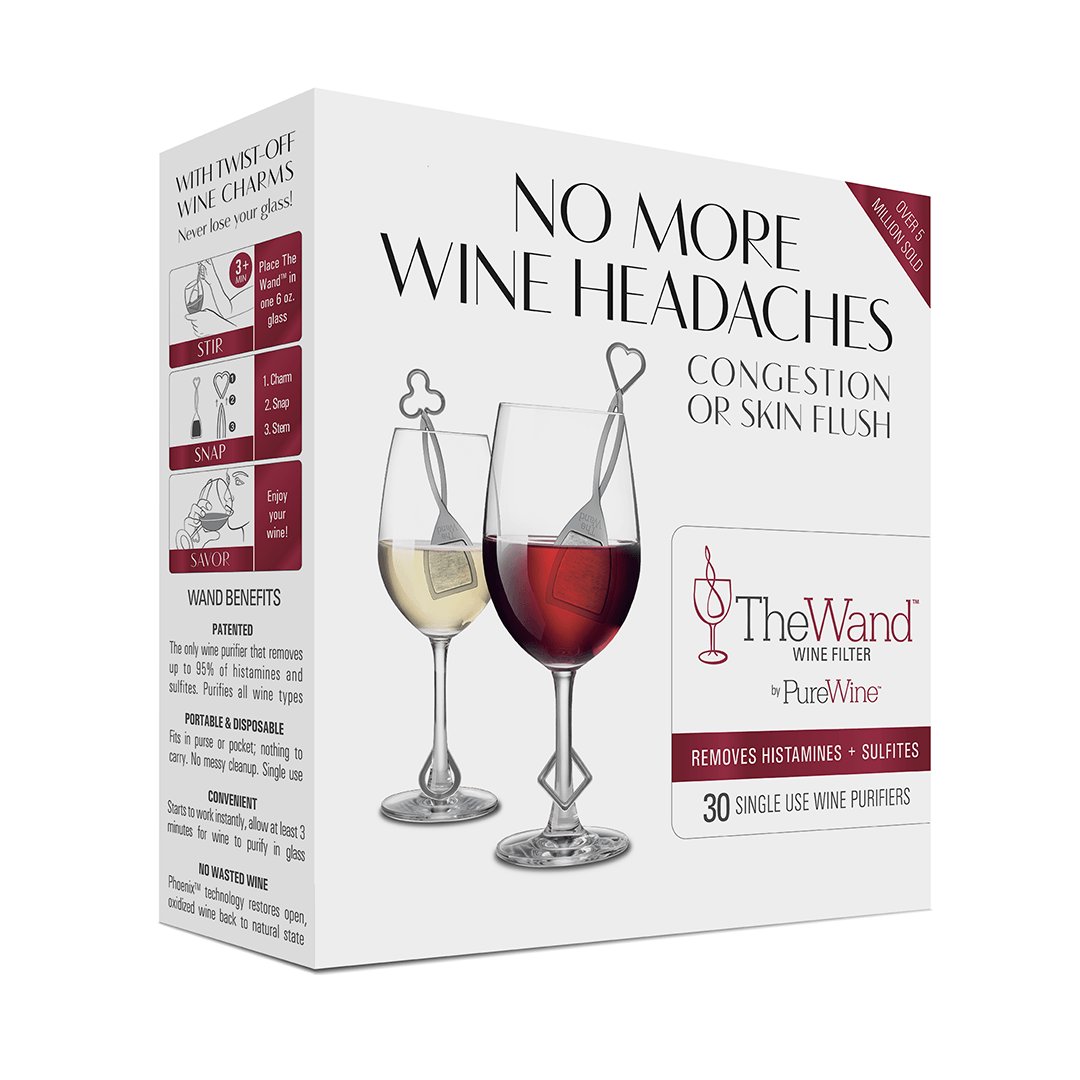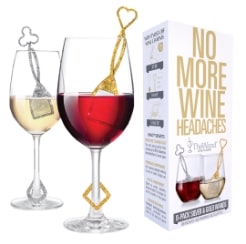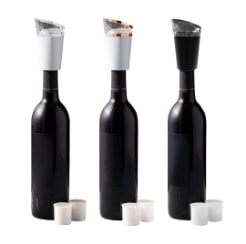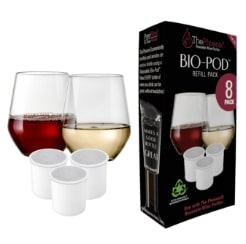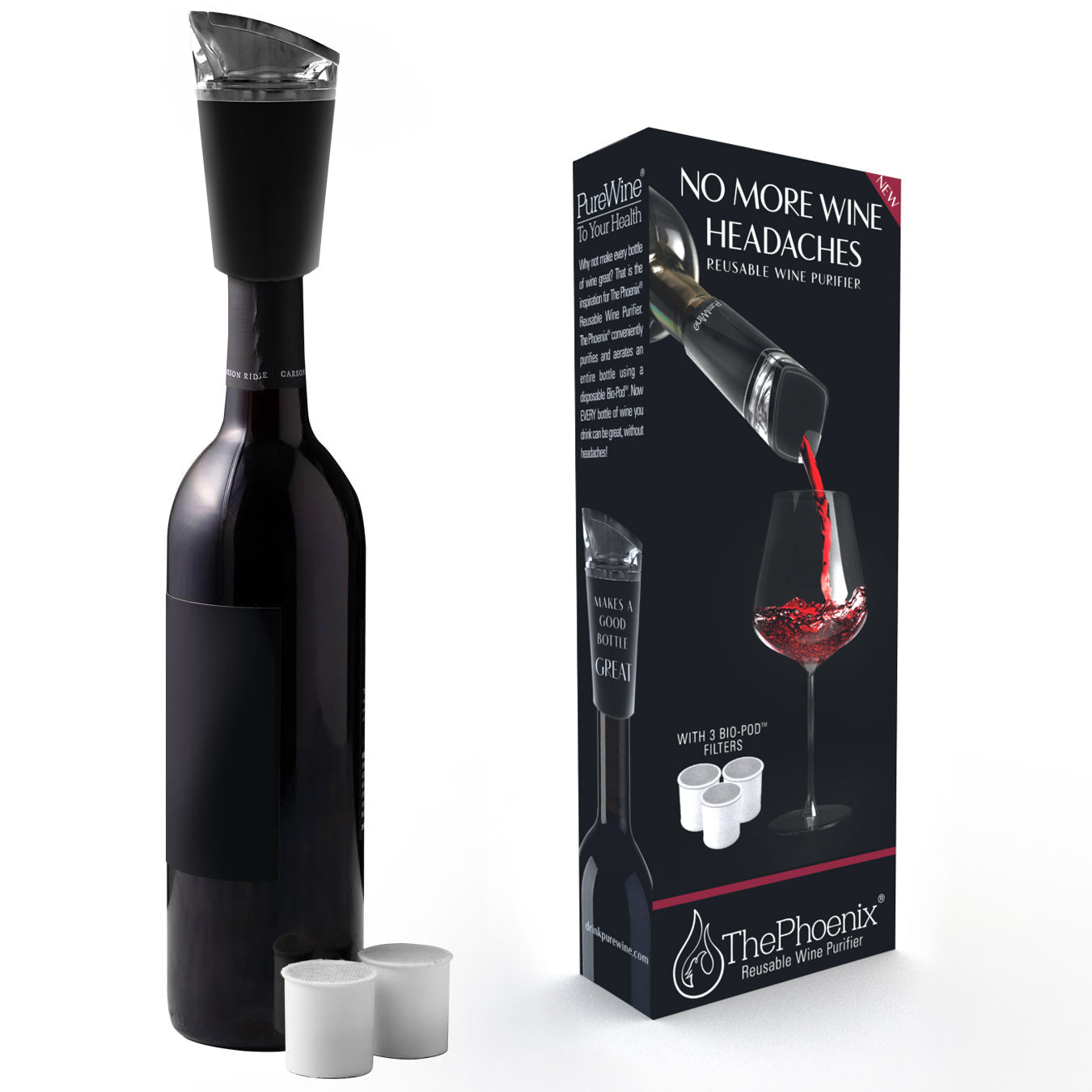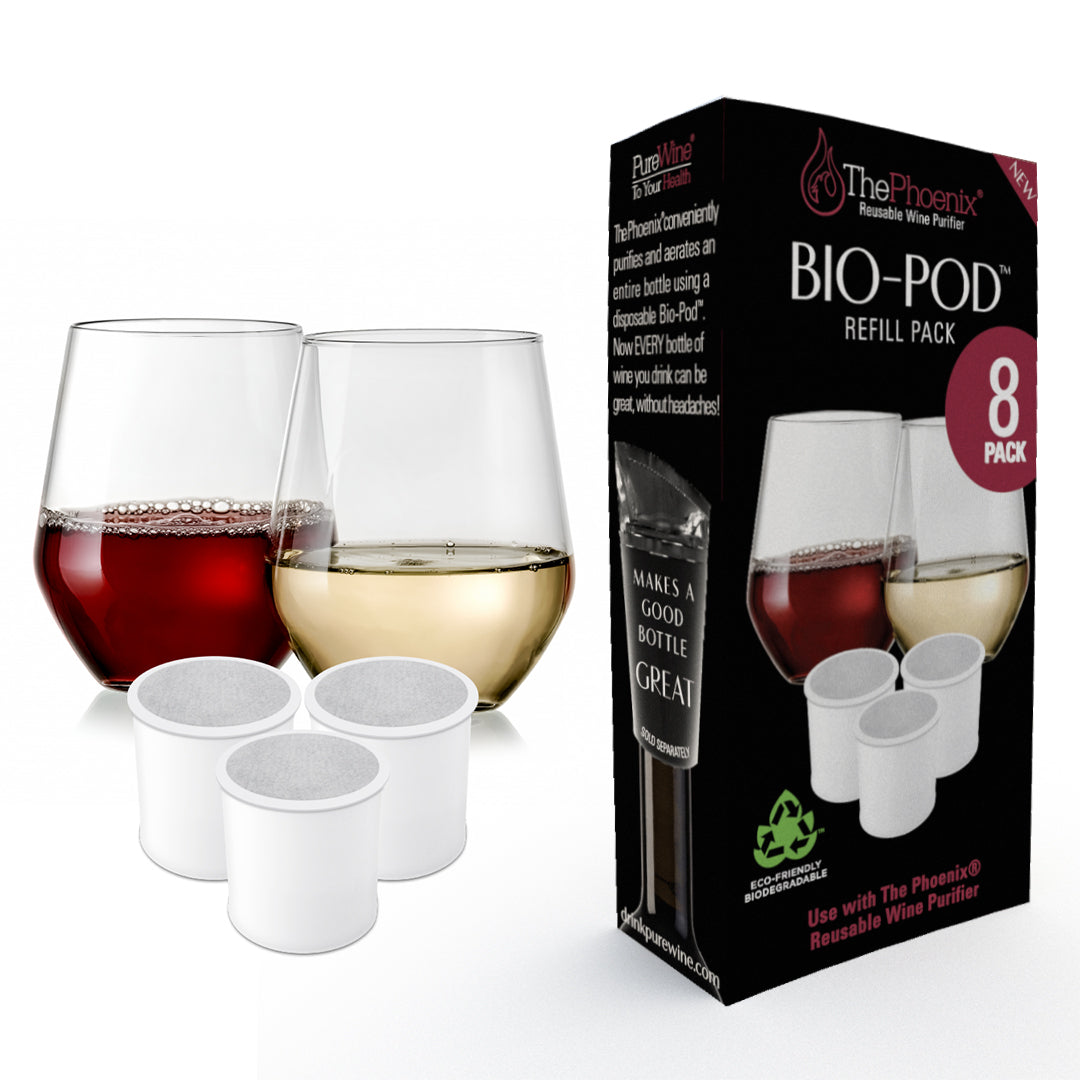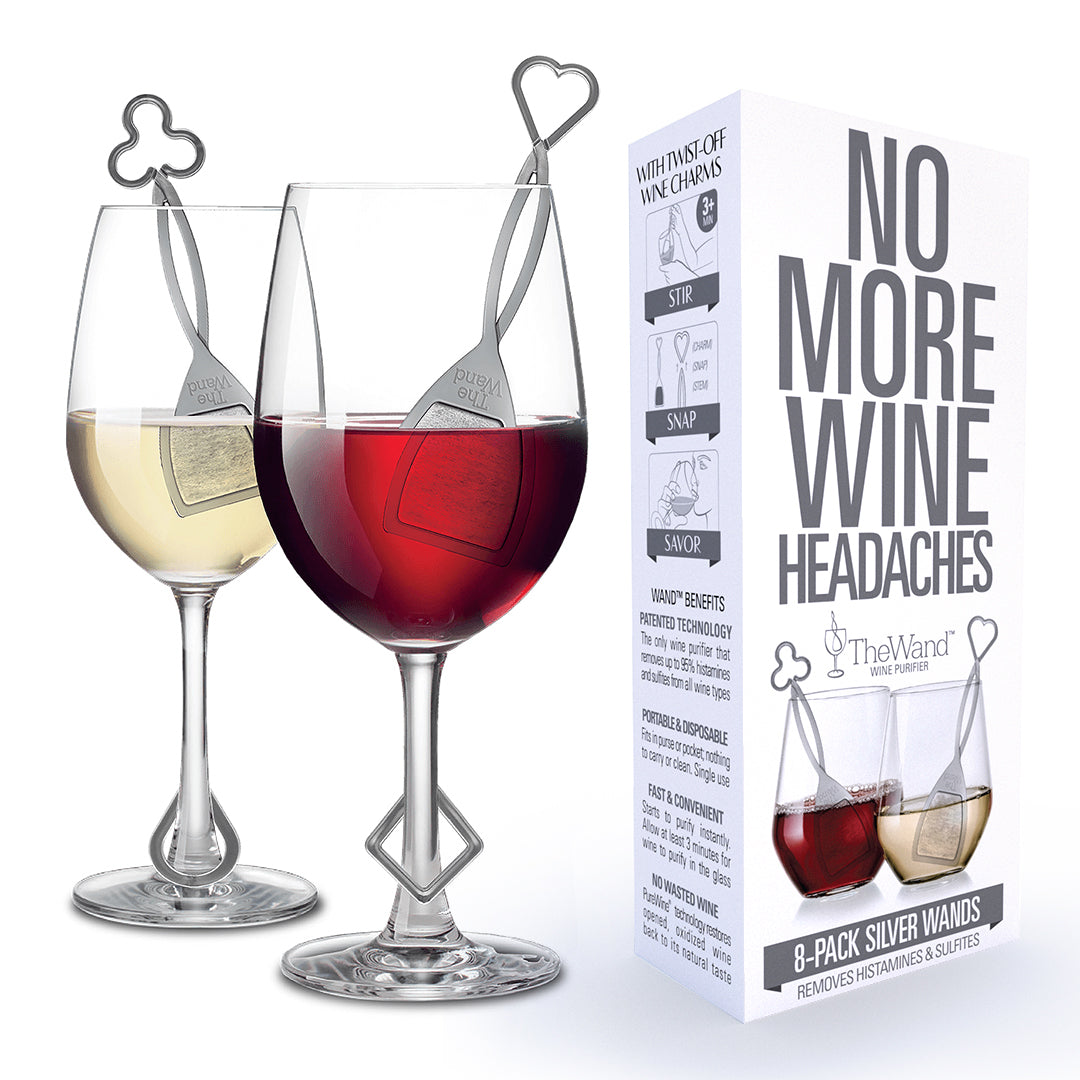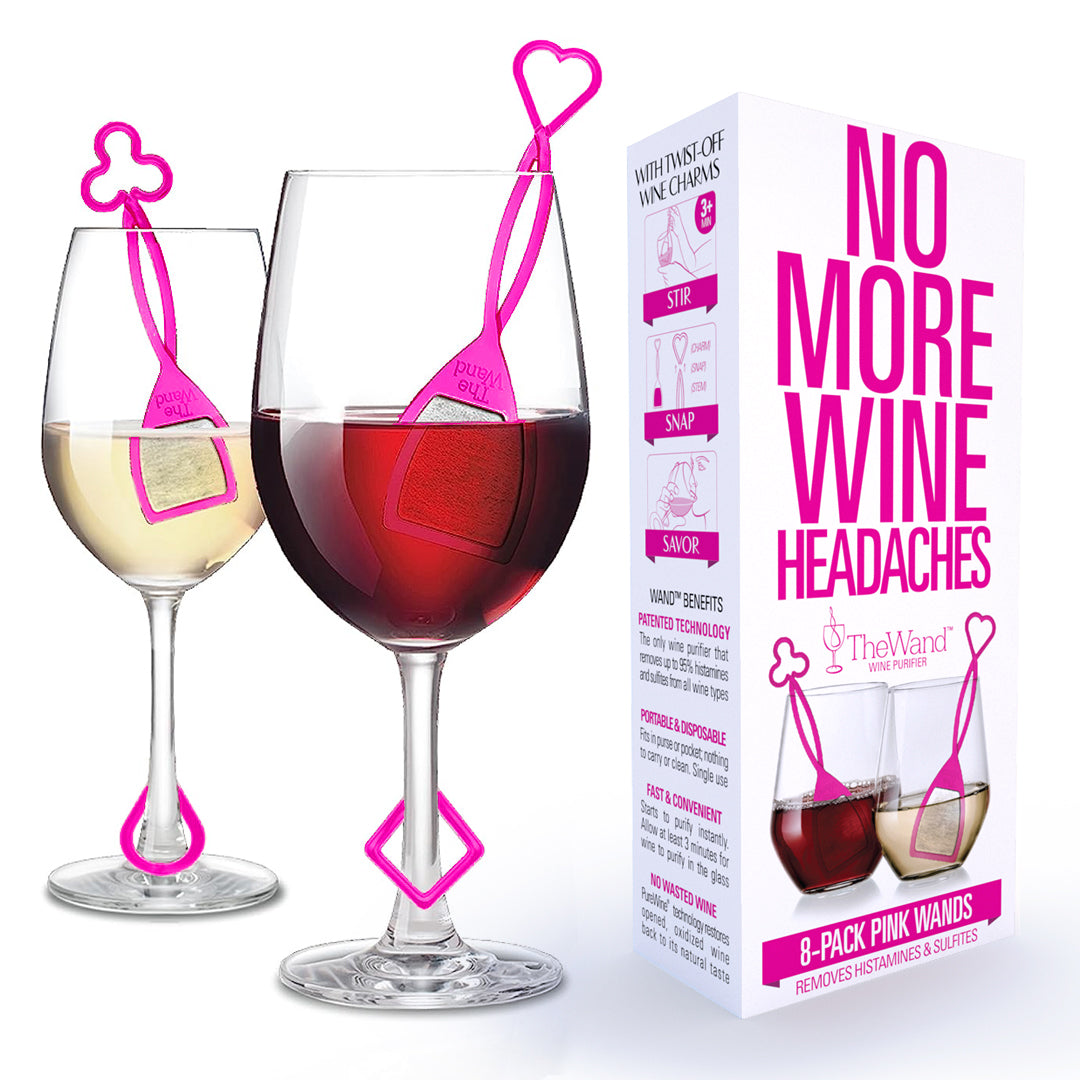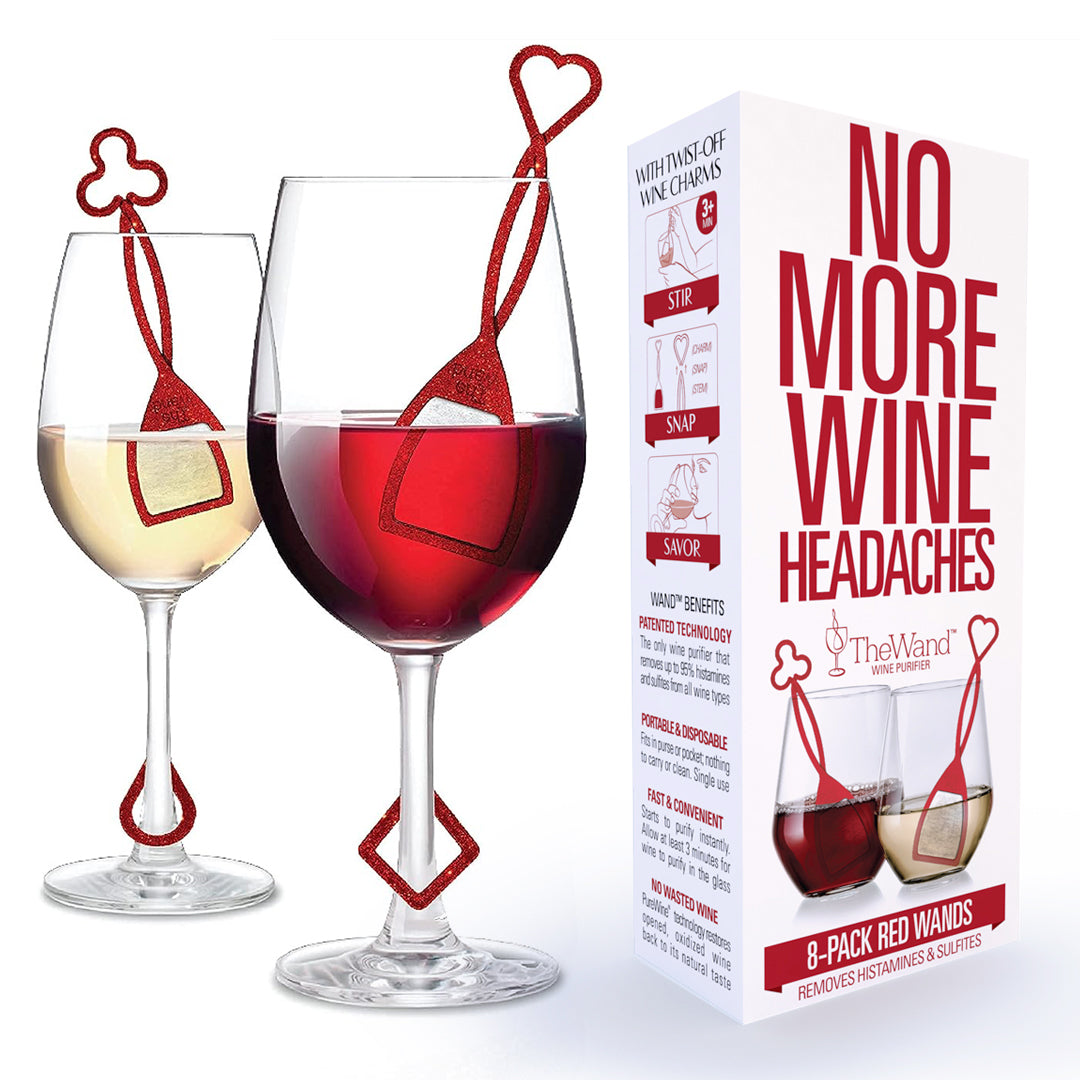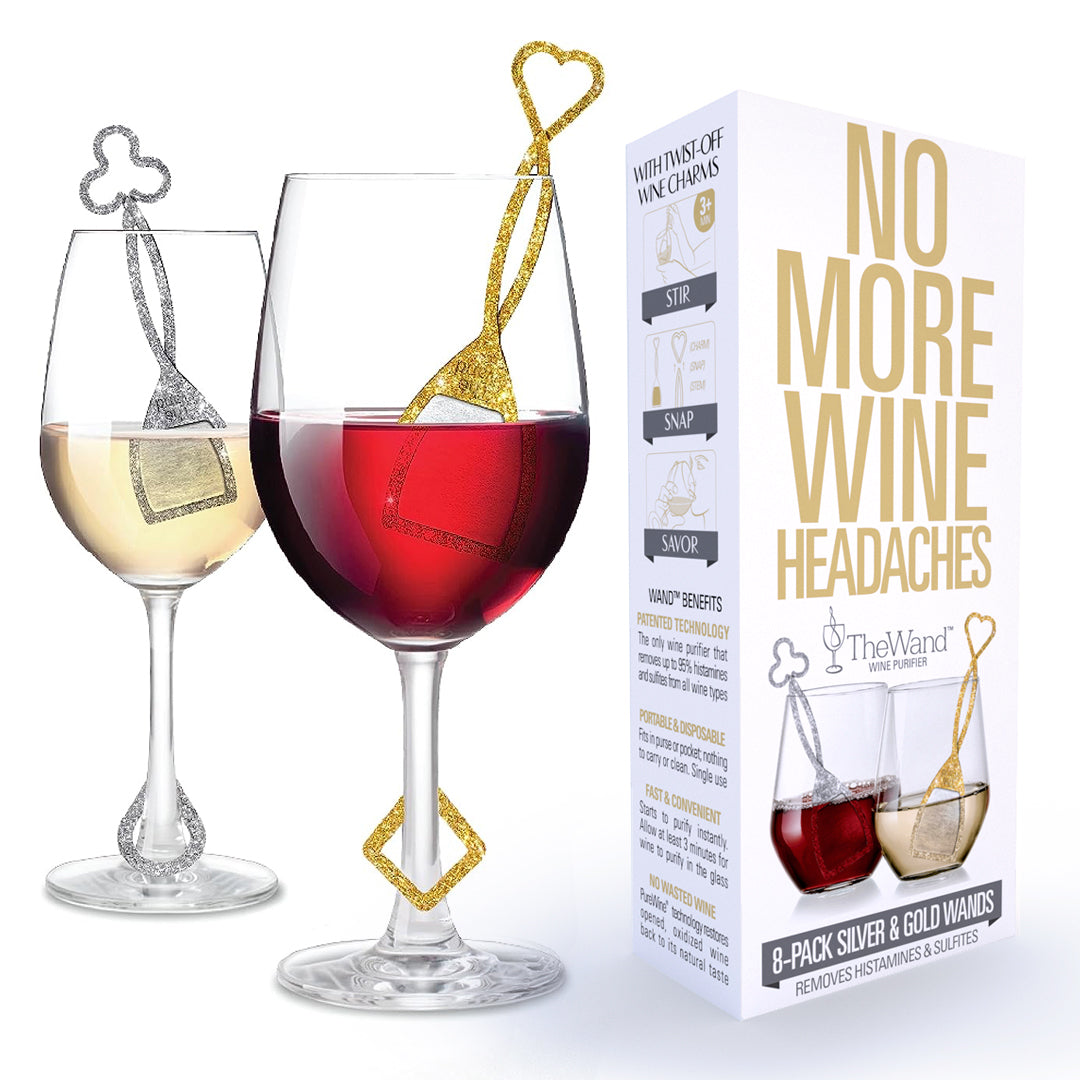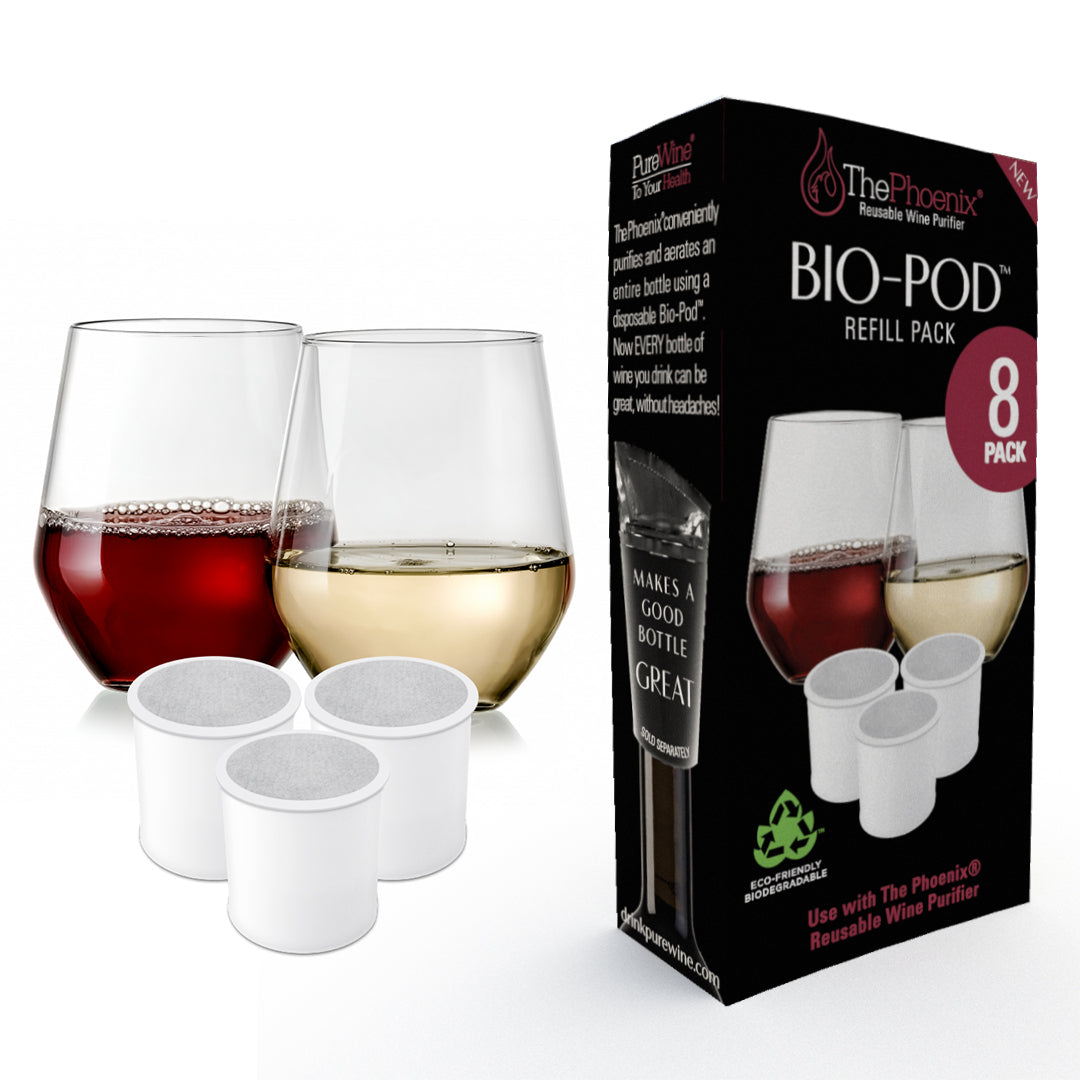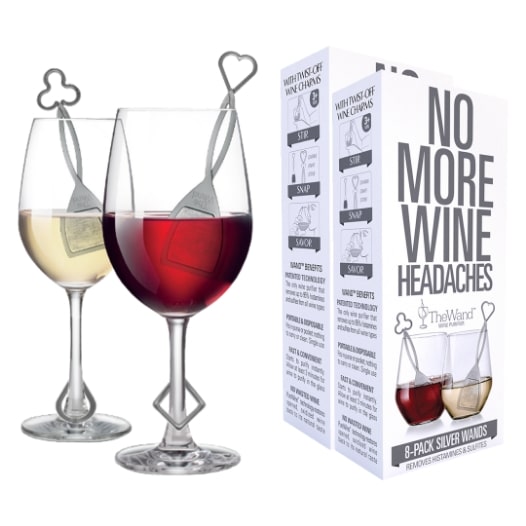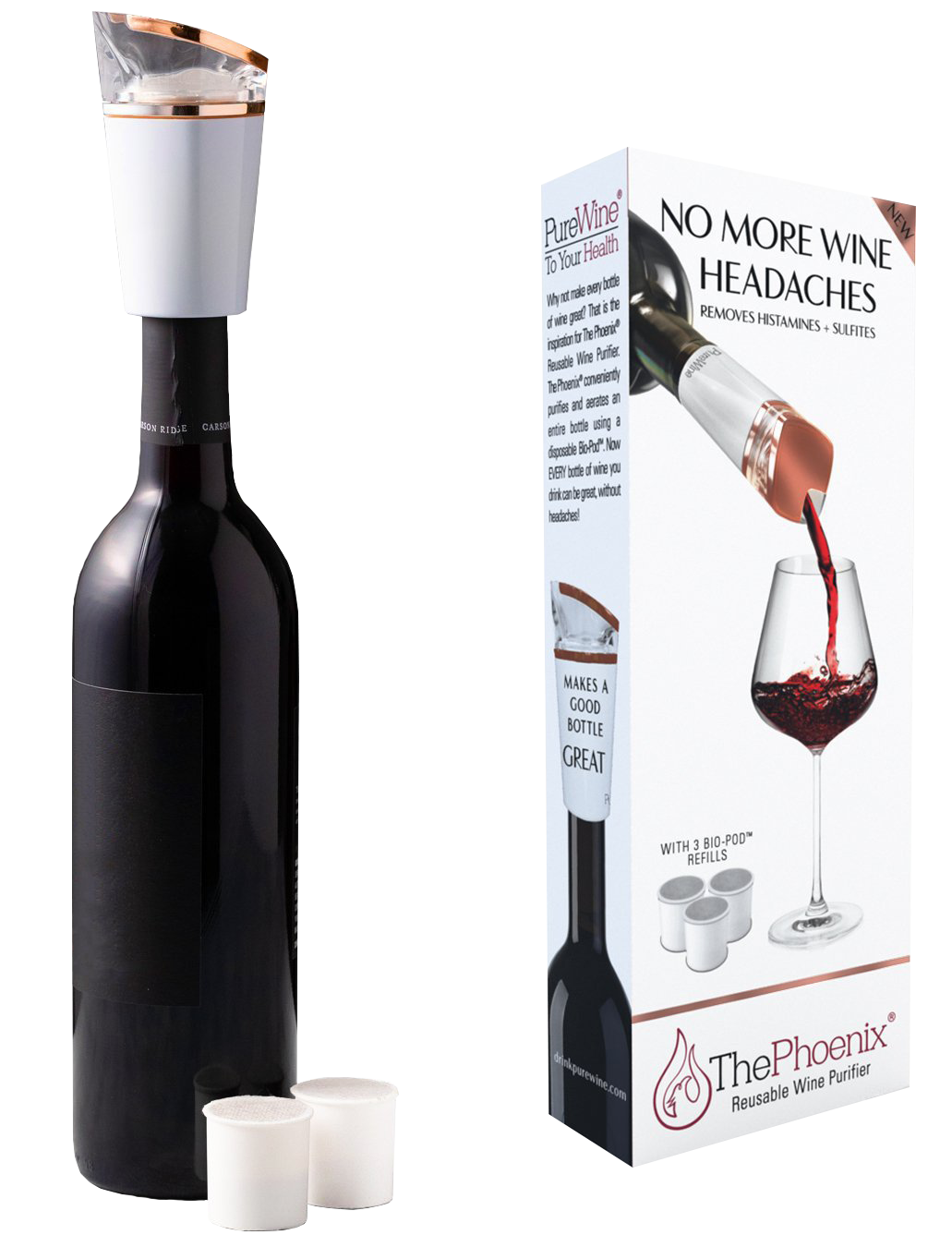Health Benefits of Red Wine – Are They Fact or Fiction?
The benefits of red wine have been extolled even before Roman times. In antiquity wine was widely used to treat everything from battle wounds, skin lesions, hair loss, cancers, a wide range of digestive disorders, and was used to purify contaminated drinking water because of the alcohol in wine (as we now know). During the Middle Ages, wine was sometimes used during exorcisms because it was considered by some religious orders to have almost magical powers to remove demonic spiritual forces.

In more modern times, achieving the good health benefits from wine did not have to involve a priest. Traveling snake oil salesmen promised relief from all kinds of health and mental afflictions through secret elixirs and potions that were based on wine.


Even the Pope has been known to extoll the healing powers of wine concoctions.

The French Paradox
Over the past 50 years, modern medical researchers have been studying a phenomenon known as the French Paradox1 that was made famous by the CBS 60 Minutes news broadcast in 1991. This paradox observes that the French population has a relatively lower cardiovascular disease rate when compared with other Western populations. Death rates from heart disease are highest in Russia, Bulgaria, Romania, Hungary, Argentina and are lowest in France, Australia, Switzerland, Japan, Israel.
This rather dramatic observation exists even though the typical French diet contains higher amounts of total fat and saturated fatty acids that are considered major risk factor for cardiovascular disease2. Researchers believe that the French paradox is partially accounted for by the higher level of red wine consumption in the French diet. The alcohol and other antioxidant compounds within red wine have been shown to have anti-inflammatory properties which could be protecting against atherosclerosis3.
What are the Health Benefits of Red Wines?
Listed below are some of the additional health benefits of drinking red wine.
-
Red Wine Heart Health
Several epidemiological studies have consistently shown the associations between light-to-moderate consumption of red wine, and the beneficial changes in lipid composition in the blood. In a large study with 5,409 subjects, red wine consumption increased the high-density lipoprotein (HDL, is the healthy form of cholesterol) levels and accounted for significant cardio-protection4. .
-
Glucose Metabolism
In a study with 60 year old wine consumers, there was a lower incidence of diabetes mellitus, as well as lower glucose levels as compared to individuals who abstained from alcohol altogether5. In another study comparing normal red wine to the same red wine that had the alcohol (ethanol) removed, researchers found that insulin levels decreased and glucose metabolism improved after consumption of both products. These findings suggest that the benefits of glucose metabolism after red wine consumption are due to the unique compounds present in red wine6.
-
Does Wine Help With Digestion?
Although better digestion is not a frequently touted benefit of red wine consumption, the evidence suggests otherwise. Studies have shown that red wine consumption is associated with an increased diversity of the gut microbiome7. One study sought to test whether red wine was a potent solution against bacteria responsible for traveller’s diarrhoea. The Romans were right all along! In this study, researchers confirmed undiluted wine was just as effective as bismuth salicylate (Pepto Bismol) in reducing the number of E. coli in the gut8.
-
Red Wine and Cancer
Long-term consumption of high levels of alcohol (> 3 servings per day) is clearly a big risk factor for a variety of cancers including GI tract, lung, breast (female), melanoma and colorectal. But no increases in risk have seen for oral, liver, pancreas, thyroid, brain, stomach, kidney, ovary and bladder10, 11.
However, it bears mention that unlike hard spirits such as gin, whiskey, bourbon, tequila, rum, and vodka, red wines typically comprise about 8-14% alcohol by volume, as compared to 40% alcohol by volume.
-
Anti Aging Benefits of Red Wine
Even though the beneficial effects of moderate red wine consumption on cardiovascular health are well known, not much attention has been given to its remarkable effects on the human lifespan. Researchers examined the level of red wine consumption and total mortality amongst adults between the ages of 55 and 65. Both high and low wine consumption were associated with reduced mortality risks as compared to adults who completely abstained from alcohol12. These findings are consistent with the Mediterranean way of drinking and longevity. The landmark Copenhagen Prospective Population Studies in the year 2000 demonstrated conclusively that red wine intake has a beneficial effect on all-cause mortality. Researchers suggest that up to 2 glasses a day of red wine for men, and one glass for women, can increase longevity and reduce the risk of cardiovascular disease13,14. Moderate red wine consumption in combination with regular physical activity, not smoking and a Mediterranean diet had a large impact on extending life expectancy.
-
Wine and Bone Health
Certain compounds in red wine have even been shown to improve bone mineral density and overall bone strength. In particular, resveratrol in red wine has been found to promote bone health, even in the presence of a high saturated fat diet15. Indeed, amongst post-menopausal women in whom the risk of fracture is high, a preference for red wine has been associated with a lower incidence of hip fractures16.
-
Wine and Brain Health
Regular light to moderate consumption of red wine has been associated with a decreased risk of ischaemic stroke17. Red wine is also rich in specific polyphenolic compounds which appear to slow down the biological processes of Parkinson’s disease and Alzheimer’s dementia. These compounds include quercetin, myricetin, tannins, catechins, resveratrol, ferulic acid and anthocyanidins18,19.
-
Prevention of Cataracts
Resveratrol, the naturally occurring plant polyphenol that is found in grapes, has potent antioxidant and anti-inflammatory effects which prevent the initiation and progression of age-related ocular diseases such as cataracts, glaucoma, macular degeneration and even retinopathy in diabetes mellitus20. Studies have found a decreased risk of cataract from the daily consumption of just one glass of red wine21.
How Much Wine is Too Much?
The old adage ‘too much of a good thing can be bad' rings true again, and red wine should therefore be consumed in moderation. The benefits of red wine have consistently been demonstrated for light to moderate red wine consumption. However, heavy wine consumption is associated with a wide range of adverse health and societal effects. You are probably wondering, what does moderate alcohol consumption actually mean?
Shown below is a comparison of the normal serving sizes for the four most popular alcoholic beverages. One 12 fl oz can of 5% beer has the same amount of ethanol as 5 fl oz glass of white or red wine. Each of these servings contains about 12 grams of ethanol. So in theory, all four should have the same impact on inebriation and overall health if there were indeed equivalent. However, as we have discussed, medical research has clearly shown that all of these alcoholic beverages are clearly not the same. Each can have very different impacts on overall health especially when long-term consumption exceeds 3 servings per day.

Red Wine Health Benefits FAQs
Is drinking red wine really good for your heart?
Consuming red wine in moderation can be beneficial for heart health. It contains antioxidants such as resveratrol, flavonoids, and tannins which are known to help prevent heart disease. These components increase levels of high-density lipoprotein (HDL) cholesterol (the 'good' cholesterol) and protect against artery damage. However, it is essential to remember that excessive drinking can actually harm your heart. Therefore, moderation is key.
What makes red wine healthier than other alcoholic beverages?
The health benefits of red wine are derived from its rich content of antioxidants like polyphenols, resveratrol, and flavonoids, which are not typically present in other alcoholic beverages. This antioxidant content contributes to heart health, and in some studies, has been associated with longevity and lower risk of diabetes.
Can drinking red wine help stimulate my metabolism?
Some studies suggest that red wine might slightly increase metabolic rates and fat burning, provided it's consumed in moderation. However, because wine is rich in sugars, excessive consumption can lead to weight gain and other metabolic disorders. Always remember to drink responsibly.
How much red wine should I drink to get the health benefits?
Most health experts suggest moderate drinking is the best approach. This is often defined as up to one drink per day for women and up to two drinks per day for men.
Can red wine reduce the risk of stroke?
Moderate consumption of red wine can be linked to a lower risk of stroke, particularly in women. However, excessive drinking can increase the risk. Always pair wine consumption with a healthy lifestyle for overall health benefits.
Remember, while moderate consumption of red wine may offer certain health benefits, these should not be used as a substitute for healthy living habits like maintaining a balanced diet, regular exercise, and regular medical checkups.
Wine Health References -
References
1. https://www.youtube.com/watch?v=njm1LkXP2sg
2. Castaldo L, Narváez A, Izzo L, et al. Red Wine Consumption and Cardiovascular Health. Molecules (Basel, Switzerland). 2019;24(19):3626.
3. Snopek L, Mlcek J, Sochorova L, et al. Contribution of Red Wine Consumption to Human Health Protection. Molecules. 2018;23(7).
4. Marques-Vidal P, Bochud M, Paccaud F, et al. No interaction between alcohol consumption and HDL-related genes on HDL cholesterol levels. Atherosclerosis. 2010;211(2):551-557.
5. Commission E. Commission Regulation (EC) No 1881/2006 of 19 December 2006 setting maximum levels for certain contaminants in foodstuffs. Official Journal of the European Union. 2006;364(1):5-24.
6. Chiva-Blanch G, Urpi-Sarda M, Ros E, et al. Effects of red wine polyphenols and alcohol on glucose metabolism and the lipid profile: a randomized clinical trial. Clinical nutrition (Edinburgh, Scotland). 2013;32(2):200-206.
7. Le Roy CI, Wells PM, Si J, Raes J, Bell JT, Spector TD. Red Wine Consumption Associated With Increased Gut Microbiota α-Diversity in 3 Independent Cohorts. Gastroenterology. 2020;158(1):270-272.e272.
8. Weisse ME, Eberly B, Person DA. Wine as a digestive aid: comparative antimicrobial effects of bismuth salicylate and red and white wine. BMJ (Clinical research ed). 1995;311(7021):1657-1660.
9. Chen S, Yi Y, Xia T, et al. The influences of red wine in phenotypes of human cancer cells. Gene. 2019;702:194-204.
10. He S, Sun C, Pan Y. Red wine polyphenols for cancer prevention. Int J Mol Sci. 2008;9(5):842-853.
11. Klatsky AL et al. Alcohol Intake, Beverage Choice, and Cancer:A Cohort Study in a Large Kaiser Permanente Population. Perm J 2015 Spring;19(2):28-34
12. Gambini J, Gimeno-Mallench L, Olaso-Gonzalez G, et al. Moderate Red Wine Consumption Increases the Expression of Longevity-Associated Genes in Controlled Human Populations and Extends Lifespan in Drosophila melanogaster. Antioxidants (Basel, Switzerland). 2021;10(2).
13. Holahan CJ, Schutte KK, Brennan PLL, et al. Wine consumption and 20-year mortality among late-life moderate drinkers. J Stud Alcohol Drugs. 2012;73(1):80-88.
14. Giacosa A, Barale R, Bavaresco L, et al. Mediterranean Way of Drinking and Longevity. Critical reviews in food science and nutrition. 2016;56(4):635-640.
15. Cardoso L, Pimenta N, Fiochi R, et al. Effects of red wine, grape juice and resveratrol consumption on bone parameters of Wistar rats submitted to high-fat diet and physical training. Nutricion hospitalaria. 2017;35(2):416-420.
16. Kubo JT, Stefanick ML, Robbins J, et al. Preference for wine is associated with lower hip fracture incidence in post-menopausal women. BMC women's health. 2013;13:36-36.
17. De Paula GC, de Oliveira J, Engel DF, et al. Red wine consumption mitigates the cognitive impairments in low-density lipoprotein receptor knockout (LDLr(-/-)) mice. Nutritional neuroscience. 2020:1-11.
18. Letenneur L. Risk of dementia and alcohol and wine consumption: a review of recent results. Biol Res. 2004;37(2):189-193.
19. Caruana M, Cauchi R, Vassallo N. Putative Role of Red Wine Polyphenols against Brain Pathology in Alzheimer's and Parkinson's Disease. Front Nutr. 2016;3:31-31.
20. Abu-Amero KK, Kondkar AA, Chalam KV. Resveratrol and Ophthalmic Diseases. Nutrients. 2016;8(4):200-200.
21. Prickett CD, Lister E, Collins M, et al. Alcohol: Friend or Foe? Alcoholic Beverage Hormesis for Cataract and Atherosclerosis is Related to Plasma Antioxidant Activity. Nonlinearity in biology, toxicology, medicine. 2004;2(4):353-370.
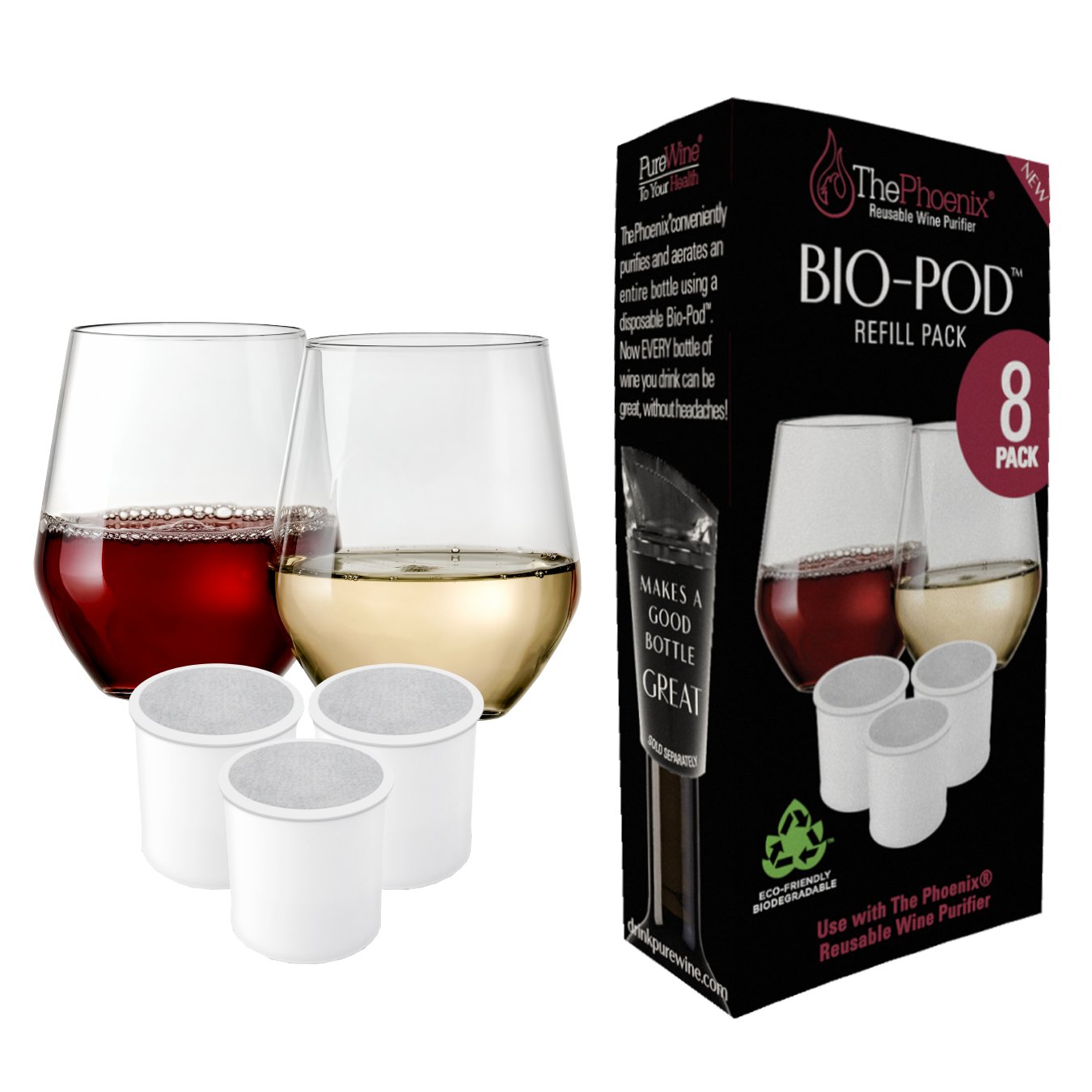
 (20 reviews)
(20 reviews)